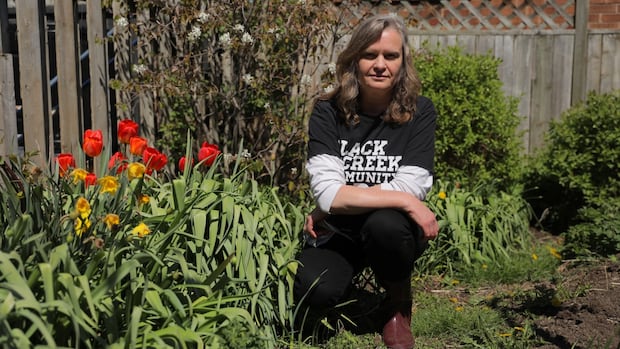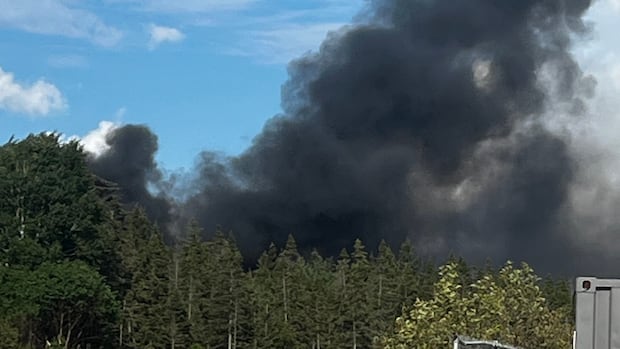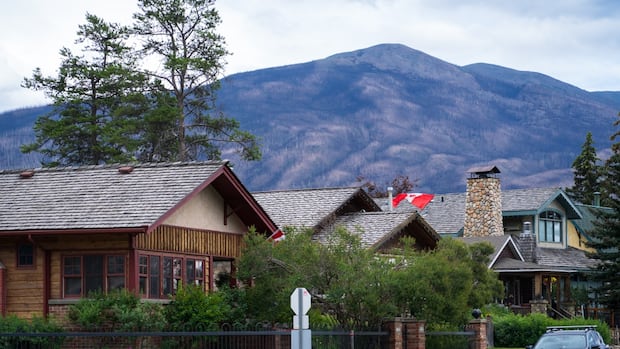Around $200,000 is now available for Palestinian scholars and students at McMaster University — one of the nine commitments the university made last year following a month-long Palestinian solidarity encampment set up on campus.
The funding is earmarked for Palestinians but falls under the university’s larger Students At Risk Bursary. Scholars can “submit an expression of interest form anytime,” said McMaster spokesperson Wade Hemsworth, but incoming undergraduate students have to apply for the September 2025 intake period by Friday.
The scholarship comes nearly a year after McMaster made a series of commitments — on May 24, 2024 — in order to help end a month-long protest on campus, where some students, faculty and community members said the university wasn’t doing enough to support Palestinians on campus and overseas, as violence in Gaza continued.
Led by McMaster University students, some 75 demonstrators, including students and some faculty members, set up roughly two dozen tents on May 5 on campus.
The tents came down weeks later as McMaster made nine commitments, and the university said this week it has now completed nearly all of its commitments. Meanwhile, some participants in the protest say the university has not done enough.
Protest lasted close to a month
The McMaster encampment protests were among similar demonstrations at post-secondary schools in Canada and the U.S. last year, prompted by Israeli military actions in Gaza.
By then, more than 34,735 Palestinians had been killed since October 2023, according to health officials in Gaza. Around 1,200 people, mostly Israelis, were also killed in Oct. 7 attacks by Hamas, according to Israeli tallies.
Since then, another 18,000 or so Palestinians have been killed by Israel’s ground and air invasion of Gaza, according to its health ministry.
The protest last May, led by student groups McMaster Apartheid Divest Coalition and Solidarity for Palestinian Human Rights (SPHR), had four demands for the university: disclose its investment in weapons companies and defence contractors, divest from companies with ties to Israel, boycott targets specified by the Boycott, Divest and Sanction movement (BDS), and declare that Israel’s bombardment of Gaza is “genocide.”
Some faculty members also supported the encampment, with some speaking on site and others signing open letters of support.
In late May, 2024, after a “series of meaningful discussions,” according to the university, the on-campus encampment ended.
McMaster committed to:
- Building a plan to include human rights in its international agreement.
- A meeting, which SPHR and supporting faculty members were to attend, with McMaster’s Chief Financial Officer to discuss the university’s investment strategy.
- Disclosing an annual report of all direct investments.
- Implementing an open process that allows McMaster community members to inquire about their investments.
- Making $200,000 available from McMaster’s Scholars-at-Risk Program and Students-at-Risk Bursary to support qualifying Palestinian students.
- Extend the contract of their current Palestinian psychotherapist and hire a male Muslim Palestinian psychotherapist.
- Publishing a series of stories about students “impacted by conflicts and crises around the world,” on the university’s Daily News site during the 2024/2025 academic year.
The university has made progress in its commitments, it says, and Hemsworth said after publishing a series of stories on McMaster’s Daily News site, all commitments will have been completed.
“The series is scheduled to be published soon,” he said in an email earlier this week.
Leah McMillan, an undergraduate representative to the university’s Board of Governors, refuted the idea that commitments will all be met, and said, for example, McMaster has yet to hire a male Muslim Palestinian psychotherapist, who was wanted for religious reasons.
Hemsworth said “best efforts were made” to hire a counsellor with that criteria, but two female Palestinian counsellors are available through their Student Wellness Centre as well as “two recently hired male Muslim counsellors.”
University not doing enough on divestment: student
McMillan also said the actions aren’t enough, especially when it comes to divesting from Israeli companies.
Last fall, McMaster published a report that listed “all direct investments” up until June 2024, as part of its “commitment to transparency.”
It then spent four months of consultation on a new set of Principles of Responsible Investment, it said, and received “about 2,600 submissions” on the matter.
The principles were approved on April 24. “They do not support divestment but instead prioritize the fiduciary responsibilities of the Board and support the long-term health of our institution,” the university said in a statement when approving the new principles.
McMillan said the approval came with almost no changes, despite having over 1,400 people, including staff, students and faculty demand divestment from weapons companies and from Israel.
The principles’ purpose is “not to encourage or advocate for an institutional position on social or geopolitical issues,” McMaster president David Farrar said in the statement in April.

But McMillan argues that investing in weapons companies “that are enabling the ongoing genocide of the Palestinian people” is not politically neutral.
“If you are neutral, you are taking the side of the oppressor,” they said.
McMillan said they tried to propose a separate motion to divest specifically from weapons manufacturers, but it was rejected both from being put on the meeting agenda and later by the university’s Investment Pool Committee.
McMillan said they continue to be disappointed the university does not use the word “genocide” when describing actions in Gaza. “Again, McMaster has not done that,” they said.
Group suspended
SPHR was suspended in December, according to Hemsworth, “following a disruption at the December meeting of McMaster’s Board of Governors.”
“The agreement signed last spring to end the encampment included a commitment not to disrupt university business,” he said.
McMillan said the investigation has prevented the club from “doing anything as an organization,” since then, which has also placed members of the club in a situation where they’re afraid to speak out for fear of SPHR facing more scrutiny.
Hemsworth said the university’s policy on student groups is “consistently applied in all cases.”
McMillan said they were speaking out in part this week because SPHR feels like it can’t make public statements, they said.

McMillan said “seeing violence [in Gaza] escalate every day” has been difficult.
They look back on the time a year ago, and the “energy of community and solidarity” that existed in the encampment, and hope that McMaster will do more.
“[In class] we talk about decolonization, we talk about genocide studies … We talk about war crimes and human rights and sustainable development goals,” they said.
“All of that seems to ring hollow for a lot of students when confronted with McMaster’s own complicity in the ongoing genocide.”







